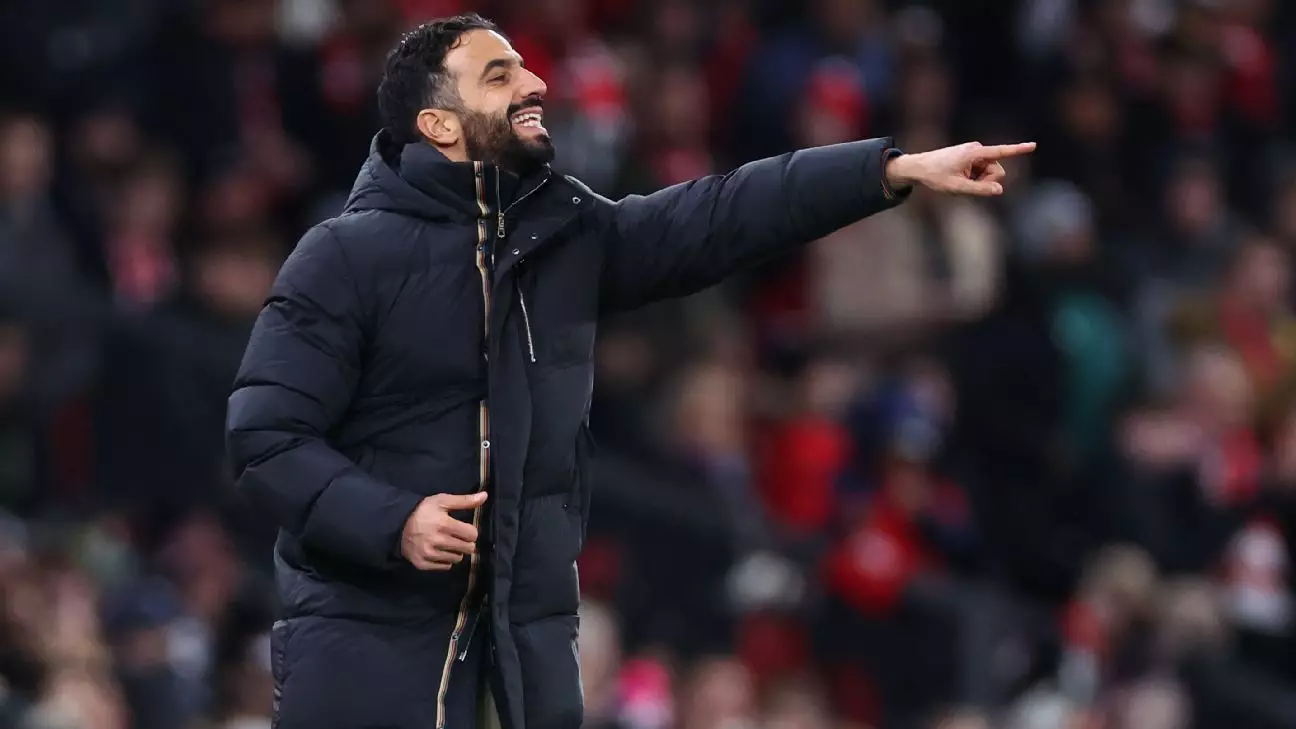In the dynamic realm of football management, few challenges can be as daunting as stepping into the shoes of a prestigious club like Manchester United. Ruben Amorim, the club’s newly appointed manager, has openly expressed the anxieties and uncertainties that accompany this demanding role. Following a narrow 3-2 victory over Bodo/Glimt in the Europa League, Amorim candidly admitted that the journey is fraught with nervous moments as he strives to instill his tactical philosophy in a squad still adjusting to his methods.
Amorim’s admission of feeling anxious while watching his team navigate the complexities of a match reflects the tension that often accompanies managerial transitions. The Portuguese coach emphasized his lack of familiarity with the players and their ability to execute his strategies effectively, which heightens the stakes as each match unfolds. His acknowledgment that he feels a loss of control—an unusual position for someone in a leadership role—speaks to the complexities of establishing oneself in a new environment.
Gradual Adjustments in Tactical Approach
Ruben Amorim’s approach to management is not one that yields immediate results, and his early tenure at Old Trafford has underscored this reality. In his first match, a disappointing draw against Ipswich showed the necessity for tactical refinement. Against Bodo/Glimt, Amorim made significant adjustments, implementing six changes to the starting lineup in search of improved performance. This nimble response indicates a coach willing to adapt and learn in real-time—an essential characteristic for any successful manager.
The coach’s reflections on the struggles of his side are telling. Despite the triumph against Bodo/Glimt, Amorim is acutely aware that more challenges lie ahead, particularly with Everton looming on the horizon. The pressing demands of the Premier League require not only effective strategy but also player fitness and rotation management, as highlighted by the fatigue observed in key players like Rasmus Højlund. Herein lies a critical aspect of his management philosophy: maintaining balance and ensuring that players are adequately conditioned for the rigors of continuous competition.
A Path to Improvement and Future Outlook
The nuanced evolution of Amorim’s tactics marks a promising yet precarious journey for Manchester United. Each match provides a learning opportunity, giving him insights that contribute to his growing understanding of the players’ capabilities and limitations. By recognizing signs of fatigue and making timely substitutions, he is gradually building a robust and resilient side, one that can withstand the pressures of intense fixtures.
Although nervousness and anxiety are prevalent in the early stages of a managerial career, a commitment to improvement is what ultimately defines success. Amorim’s immediate focus will likely be on sustained tactical growth, player development, and promoting a cohesive team spirit. As the weeks unfold and he continues to find his footing, the hopes of United fans will hinge on whether he can transform initial anxiety into a foundation for enduring success—an objective that, while challenging, remains tantalizingly within reach.

